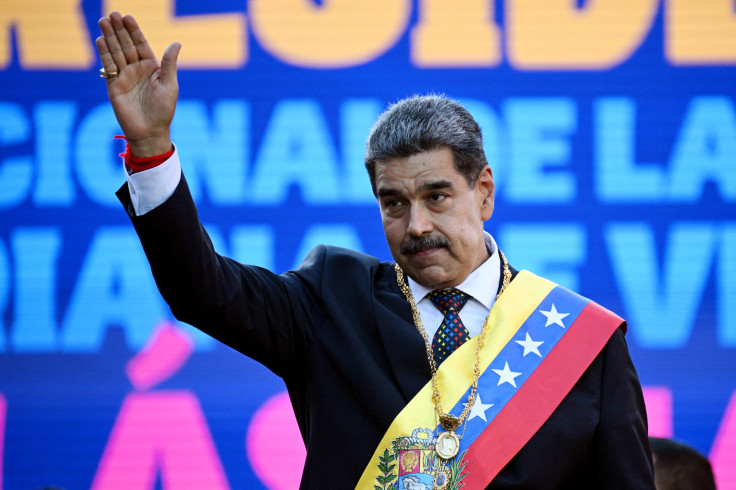
Venezuela's authoritarian President Nicolas Maduro signed a decree that would grant him additional security powers should the country face a military incursion as the U.S. keeps ramping up pressure on his regime.
The announcement was made by Vice President Delcy Rodriguez, who said the measure "gives special powers to the head of State to act in matters of defense and safety" should the U.S. "dare to attack" the South American country.
"To activate all plans of citizen security. To activate the militia in the nation's integrated defense system. To close land, sea and air borders, to safeguard our territorial integrity and the integrity of our population," she added.
The Miami Herald noted that under Article 338 of the South American country's constitution, the declaration of an "external national commotion" would allow the government to suspend certain constitutional guarantees to deal with foreign threats.
The measure can last up to 90 days and can be renewed one time. It has to be approved by the Council of Ministers, presented to the National Assembly and reviewed by the Constitutional Chamber of the Supreme Court within eight days. All such bodies are controlled by officials friendly to the regime.
"As authorities we have the responsibility to not allow these expressions in our territory. Those calling for a criminal blockade, for an invasion, can't be called Venezuelans. These expressions can't be allowed. Enough. So this state of exception is clear about the president's abilities to defend the safety and peace of Venezuela," Rodriguez concluded.
The U.S. continues to apply pressure on the country's authoritarian government through a large deployment of vessels and troops off its coast and attacks against boats it claims transport drugs that will ultimately end in the U.S.
In this context, over half of Venezuelans believe President Nicolas Maduro will fall within the next six months, according to a new poll. Moreover, a little over a third (36%) are confident he will be ousted within three months.
The survey, conducted by London-based research firm Panterra and released this week, showed that almost two thirds of the 1,200 respondents (63%) say Maduro is not the country's legitimate president.
Elsewhere in the poll, 61% said the Maduro regime is weaker than a year ago. Only 11% claimed it is stronger. "The sense that the regime is weakening is widespread," David Bluestone, managing director of Panterra told the Miami Herald. "People are seeing some of the recent moves by the regime as showing their weakness, not showing their strength."
© 2025 Latin Times. All rights reserved. Do not reproduce without permission.





